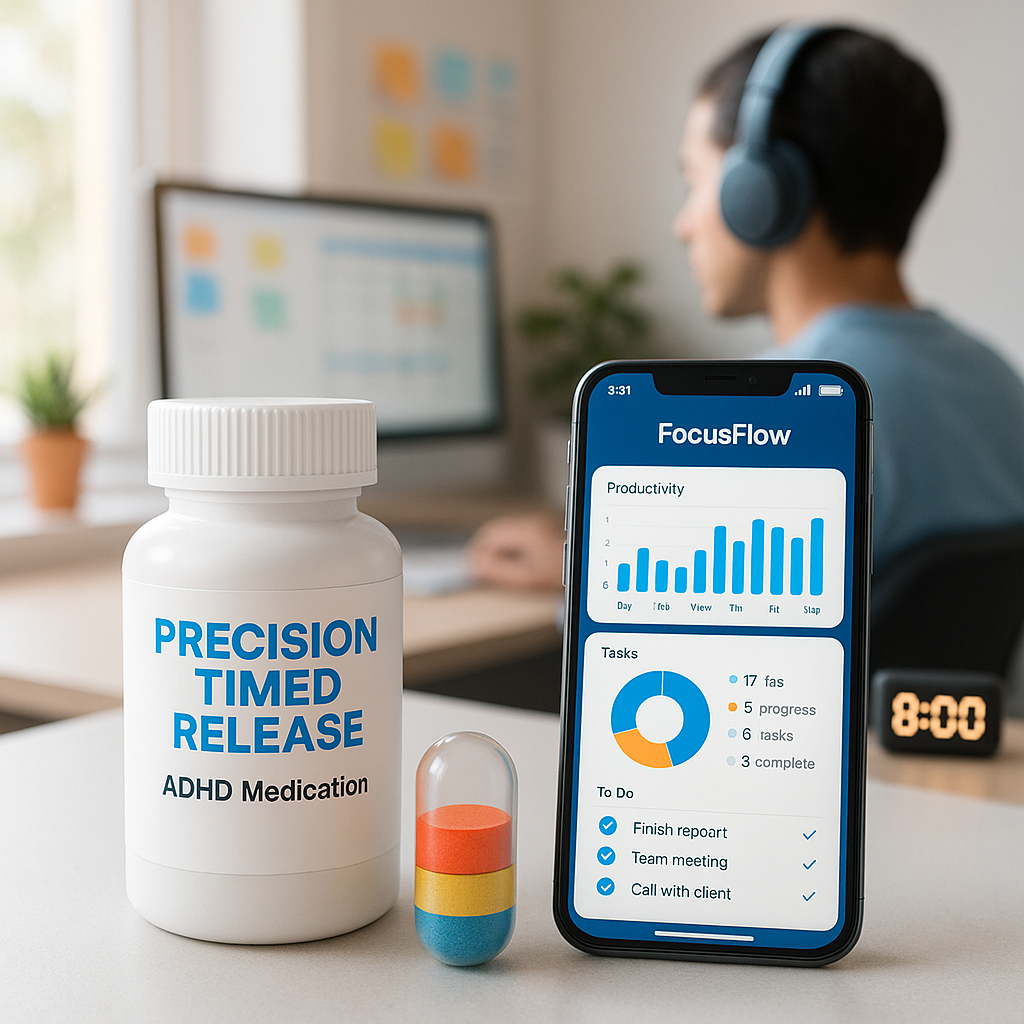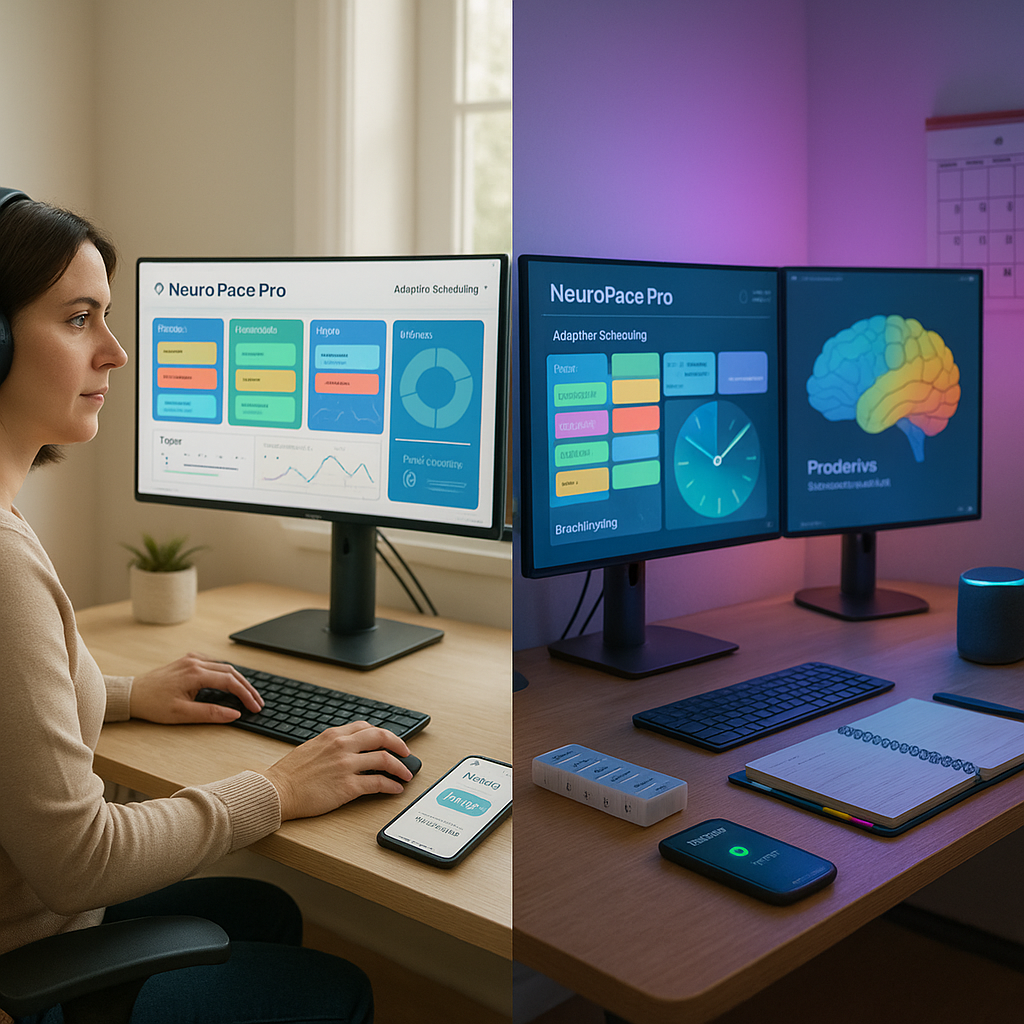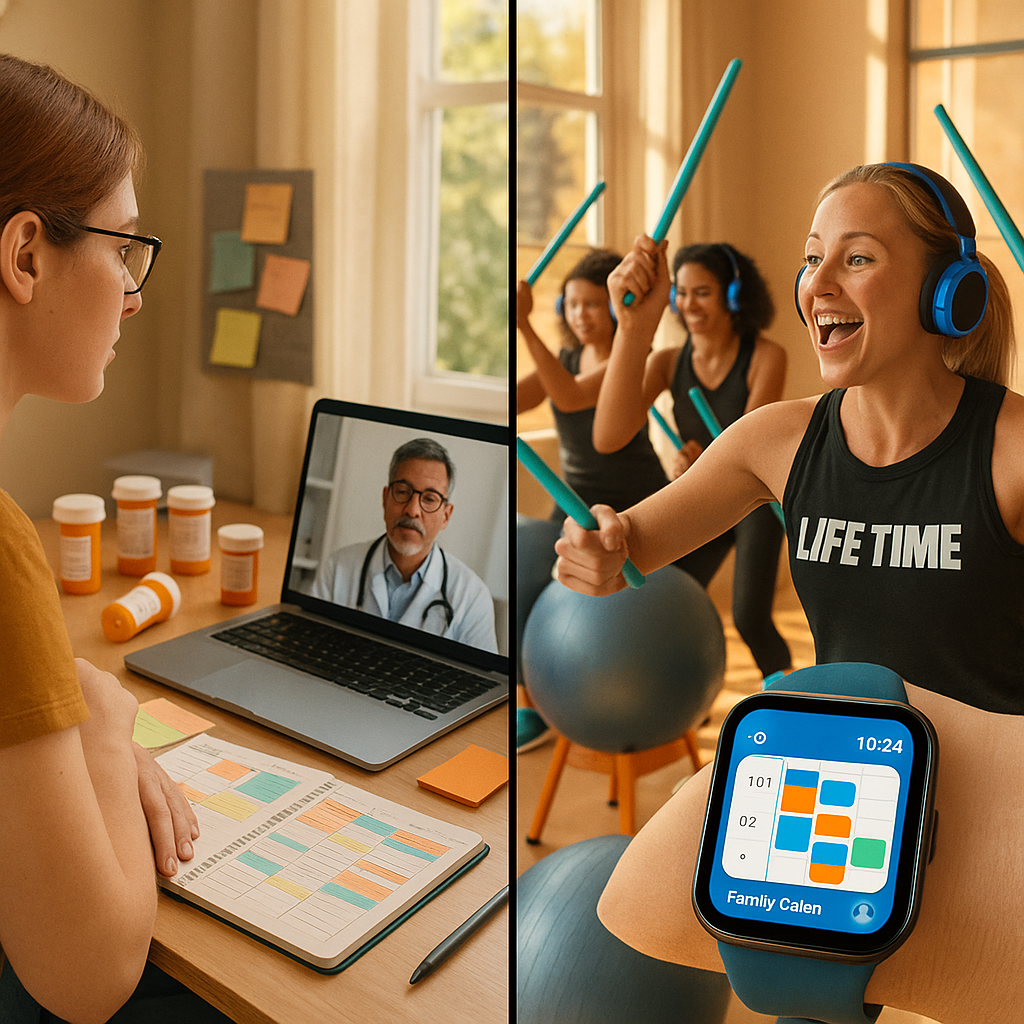Key Takeaways
- On 30 October 2025, today’s Press Review highlights a significant advance in ADHD news and developments with the CTx-1301 Phase 3 trial indicating the potential for once-daily dosing in children.
- Top story: The CTx-1301 Phase 3 trial reports promising once-daily dosing for pediatric ADHD. This could improve treatment convenience.
- Forty-two percent of preschoolers receive ADHD medication before undertaking recommended parent training, raising concerns about early intervention approaches.
- The AI assistant FocusFlow launches a workflow app designed to support neurodivergent entrepreneurs in managing distraction and task sprints.
- Neurofeedback therapy is gaining interest for its potential to provide individualized improvements in ADHD symptom management.
- What to watch: Additional data from the ongoing CTx-1301 studies are expected in early 2026.
Introduction
On 30 October 2025, ADHD news and developments take center stage as the CTx-1301 Phase 3 trial reports positive results for once-daily dosing in children, suggesting simpler treatment routines. This roundup also examines early intervention trends and digital tools supporting neurodivergent entrepreneurs in managing distraction and workflow.
Top Story
CTx-1301 Trial Shows Promising Results for ADHD Treatment
Cingulate Inc. has announced positive Phase 3 trial outcomes for CTx-1301, its investigational stimulant medication for ADHD, featuring a new once-daily dosing format. The trial met both primary and secondary endpoints, demonstrating significant symptom improvement over placebo in attention, hyperactivity, and impulsivity measures.
CTx-1301 uses Cingulate’s proprietary Precision Timed Release (PTR) drug delivery platform. This provides three releases of medication throughout the day from a single morning dose. The approach aims to reduce the “wearing off” effect common with current stimulants, without the need for multiple daily doses.
The medication showed a safety profile consistent with other methylphenidate formulations. Mild to moderate side effects typically resolved with continued treatment. Commonly reported effects included decreased appetite, headache, and initial insomnia.
Treatment Convenience Implications
Once-daily dosing could improve medication adherence and quality of life for people with ADHD by removing midday dosing and related logistical issues. Students and working adults would no longer need to medicate during school or work hours, providing both practical advantages and increased privacy.
Dr. Shane J. Schaffer, CEO of Cingulate Inc., stated that the objective for CTx-1301 was to better fit treatment into patients’ lives while maintaining daylong efficacy. He said these results indicate progress in bridging the gap between treatment effectiveness and real-world convenience.
The PTR technology’s precise timing may address unmet needs in ADHD management. Many current extended-release stimulants fail to provide consistent symptom control through afternoon and evening hours. This development is part of a broader movement toward treatments grounded in patients’ lived experiences.
Next Steps in Development
Cingulate plans to submit a New Drug Application (NDA) to the FDA in the first quarter of 2026, following the conclusion of required studies. Additional long-term safety data will be released in early 2026.
Manufacturing scale-up and commercialization strategies are already underway, targeting both pediatric and adult ADHD markets. If approved, CTx-1301 is positioned to enter a competitive field with notable advantages in its delivery platform.
Also Today
Technology and ADHD
AI-Powered ADHD Support Tools Gain Traction
Several new AI-assisted applications focused on ADHD management have reported significant user growth this quarter. Notably, FocusFlow integrates machine learning with evidence-based strategies, producing personalized productivity systems that adapt to each user’s ADHD patterns.
FocusFlow’s algorithm analyzes user habits to pinpoint prime focus times and triggers for distraction, creating custom workflows. The platform recently surpassed 500,000 active users, with internal metrics showing a 27% average improvement in task completion.
Dr. Jessica Martinez, a digital health researcher at Stanford University, stated that these tools are designed with neurodivergent thinking in mind, aiming to work with ADHD rather than imposing neurotypical solutions.
Digital Therapeutics Receive Insurance Recognition
BlueCross BlueShield has expanded coverage for digital therapeutic interventions for ADHD, including the FDA-approved video game EndeavorRx, effective from January 2026. This decision highlights the increasing acceptance of non-pharmacological digital treatments.
The policy follows multiple studies indicating the cost-effectiveness and clinical value of such digital therapies when added to traditional care. Many patients use these tools as complements to medication management.
This move may accelerate the development of digital therapeutics, with several companies advancing similar products through clinical trials. Industry experts project the ADHD digital therapeutics market could reach $2.3 billion by 2030.
Institutional Support
Workplace Accommodations Framework Released
The Equal Employment Opportunity Commission (EEOC) has published new guidelines on workplace accommodations for neurodivergent employees, including tailored recommendations for individuals with ADHD. The framework suggests reasonable adjustments for various settings and roles.
Recommendations include flexible work hours, reduced-distraction environments, allowance for noise-canceling headphones, written instructions for complex tasks, and organizational coaching. The guidelines stress that many accommodations are low-cost but can deliver high productivity gains.
Maria Chen, executive director of the Neurodiversity at Work Coalition, stated that these guidelines are an important step in fostering inclusive workplaces by providing clear, actionable advice.
University Consortium Launches ADHD Research Initiative
A consortium of seven major research universities has launched a $42 million collaborative project to advance understanding of ADHD across the lifespan. Spanning five years, these studies will explore developmental trajectories, comorbidities, and treatment outcomes using standardized methods.
The initiative will focus on populations historically underrepresented in research, including women, racial minorities, and adults over 50 living with ADHD. Researchers aim to develop more inclusive diagnostic criteria reflecting the diversity of symptom presentations.
Agreements for data sharing will create one of the largest ADHD research databases to date. Dr. Robert Williams, principal investigator, explained that this collaboration enables the field to address questions previously out of reach for smaller studies.
What to Watch
- CTx-1301 Additional Data Release: Cingulate will present complete Phase 3 results at the American Professional Society of ADHD and Related Disorders (APSARD) annual meeting from 15 to 17 January 2026 in San Diego.
- ADHD World Congress: The international conference for researchers, clinicians, educators, and advocates will be held in London from 4 to 7 December 2025, with a focus on emerging treatment strategies.
- Digital Therapeutics Regulatory Workshop: The FDA is hosting a public workshop on 12 November 2025 to discuss evaluation frameworks for digital therapeutics in neurodevelopmental conditions.
- Neurodiversity Employment Summit: Major employers and advocacy groups will meet in Chicago on 22 and 23 January 2026 to share best practices for recruiting and supporting neurodivergent talent.
Conclusion
Recent ADHD news and developments show major advances in once-daily treatment and digital support tools, marking a transition toward patient-centered care in health, technology, and work environments. These changes reflect growing acknowledgment of neurodivergent needs in everyday life. What to watch: upcoming data releases, regulatory events, and global conferences expected through early 2026.





Leave a Reply